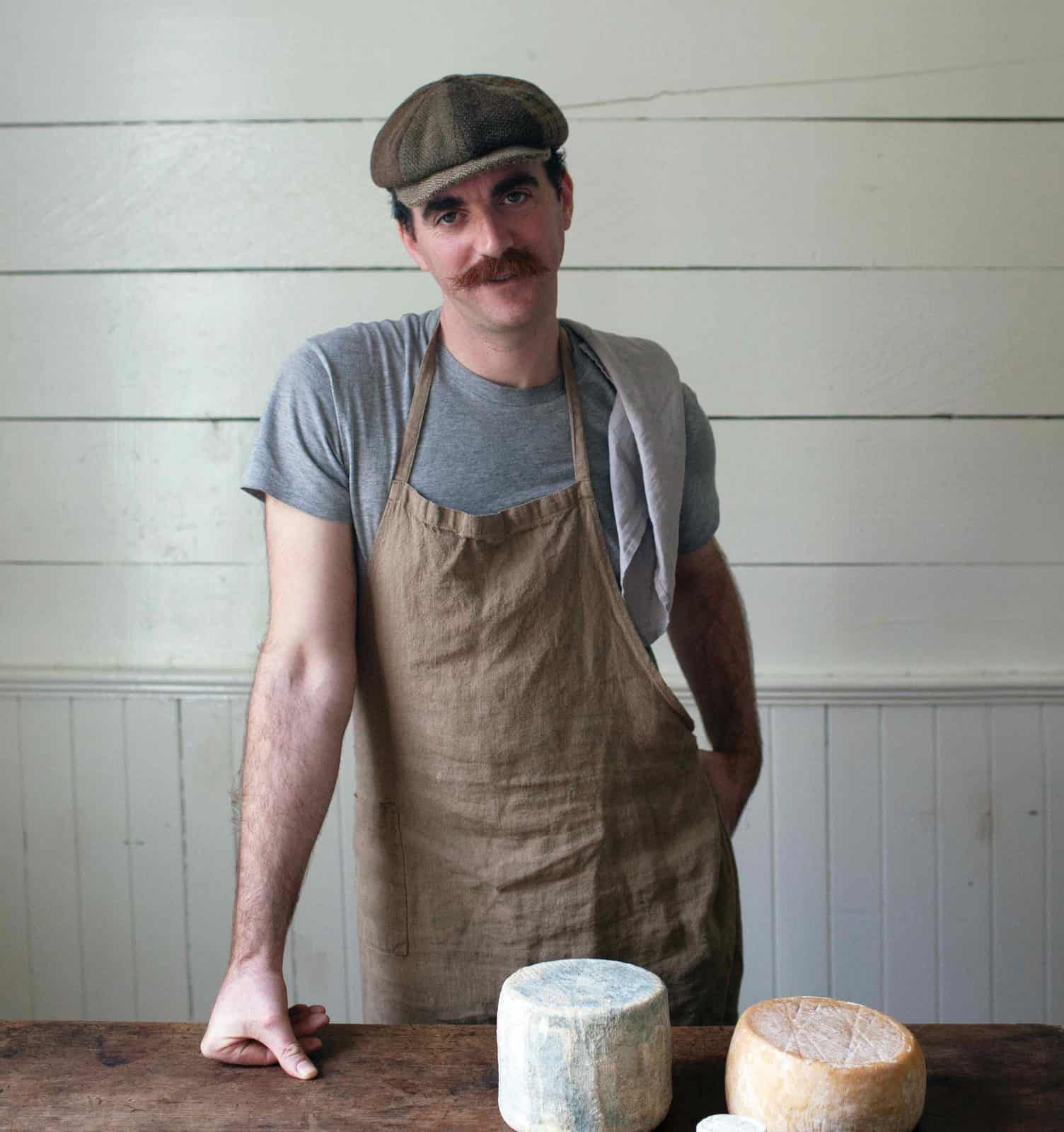
Old-fashioned is back. From sourdough bread to natural wine, the last few decades have seen a renewed interest in old-school approaches. Perhaps one of the staunchest supporters of natural cheesemaking is David Asher. His fermentation journey began with sauerkraut and other vegetables that later expanded to natural cheesemaking. A self-described “guerilla cheesemaker,” Asher travels from community kitchens to local farms advocating for raw-milk cheese made with natural fermentation.
Much of Asher’s work requires dismantling the stigma surrounding raw milk. While the determined few can obtain raw milk in the US, raw-milk sales are completely banned throughout Canada; some farmers have even spent time in prison for selling their milk. To further separate Asher from the pack, most cheesemakers rely on packaged starter cultures and rennet, which doesn’t align with his cheesemaking ethos. Instead, Asher argues that working with milk’s native microbiology creates a stronger connection to cheese; it allows space for the cheese to grow and evolve naturally. We sat down with Asher to discuss fermentation, natural methods, and changing tastes.
On traditional rennet
A lot of cheeses are made with microbial rennet; people often refer to them as “vegetarian rennet.” I prefer the term “genetically modified.”
On changing tactics
Cheesemakers are very conservative in their methods. In general, they’ve been making cheese one way their whole lives, and they’ve come to have faith in it. And sure, it works; they do make good cheese. But cheesemakers are challenged by the idea that a [homemade]starter culture can allow the cheese to evolve in a certain way.
On Europe vs. North America
There are many examples in Europe of a strong relationship to the landscape, and the cheeses that are made there reflect that. Here in North America, we don’t really have that relationship to the land. In many ways, it’s severed. When we make a cheese, we follow a recipe that calls for an ingredient list.
On natural cheesemaking
I see it as an art that invokes natural fermentation with a culture that’s captured by the cheesemaker and the use of traditional (calf) rennet. It differs considerably from how cheesemaking is generally practiced in North America.
On taste of place
How can cheese made in a certain place taste of a certain place when it’s made from packaged freeze-dried starter cultures brought in from Denmark, and the rennet is produced in Colombia?
On consuming raw milk
I don’t necessarily believe raw milk is safe to drink. I perceive raw-milk cheese making as a way of making raw milk safe using traditional forms of fermentation. That’s the way I approach it.
On natural vs. standard cheesemaking
There’s a vast difference between the natural approach and the standard approach. The natural approach is very liberating to cheesemakers. It allows the cheese to evolve in a very natural way, and allows them to express the microbiology of the milk. It’s more reflective of what they’re doing as cheesemakers.




“On taste of place”. In European-cheese, is the starter traditionally imported from somewhere else or is it derived locally.o
Excellent. So, what kind of cheese(s) does he make? Are they available for purchase online or locally?